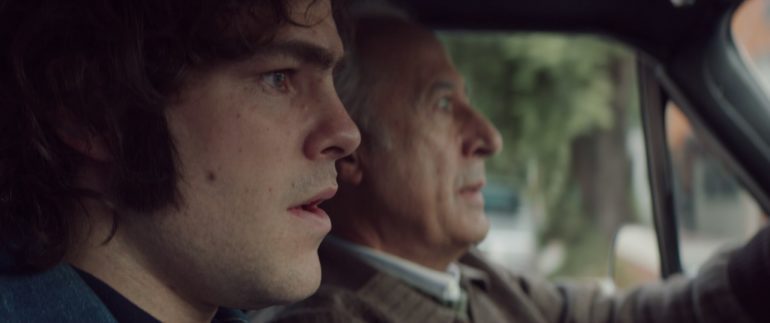For all the murderous disorder of their work, Mafia groups are defined by their close-knit familial structures. It’s this organization that has driven the drama in the best portrayals of the Mafia, from The Godfather to The Sopranos. The only problem is that their generic influence, much like that of nominal godfather Arquimedes Puccio (Guillermo Francella), is so strong that it becomes tricky to separate one film from another. In the case of Argentine thriller El Clan, it is gifted a fascinating historical backdrop which feed into the machinations of the real events depicted therein.”
Director/co-writer Pablo Trapero knows the ground he’s treading is well-worn, so he’s upfront about his influences. The story is as old as Mafia films themselves: eldest son Alex (Peter Lanzani) is conflicted about his family business. He owns a sporting goods shop, paid for by his father’s blood money. He’s a champion rugby player, but teammates have been kidnapped by Papa Puccio as hostages for ransom. Alex and the rest of his family have varying levels of knowledge and involvement in these crimes, and their multitude of frustrations, confusion and forced public smiles helps sell the story to a certain extent. Alex tries to lead a normal life, with his shop, his rugby and his new girlfriend (Stefania Koessl). The Argentinian sunshine is contrasted with the grimy bathroom and cellar dungeon used by the group to hide the kidnapped. The solid performances sell the story, though Francella’s eerie calmness is the standout. He’s matter-of-fact about his business affairs both legal and otherwise, and there’s little scarier than a corrupt man in full control.
Ultimately, El Clan works because its story of one family is grounded in all-too-recent history. Puccio Sr. extorts ransom from frightened families by posing as a representative of a state terrorist group. The regime of General Galtieri allowed such groups to flourish, and the film is keen to stress this point. The script doesn’t portray the Puccios as political, merely opportunist. When the democratic Alofonsin government takes power, Puccio Sr. is warned “We don’t have the same pull we had any more.” As is the way of these things, El Clan charts a rise and fall, and if the plot mechanics don’t seem predictable at first, the Scorsese-aping long takes might. Even if El Clan isn’t anything very fresh, there’s sufficient historical meat on the bones to ensure we’re not left feeling like schnooks.

